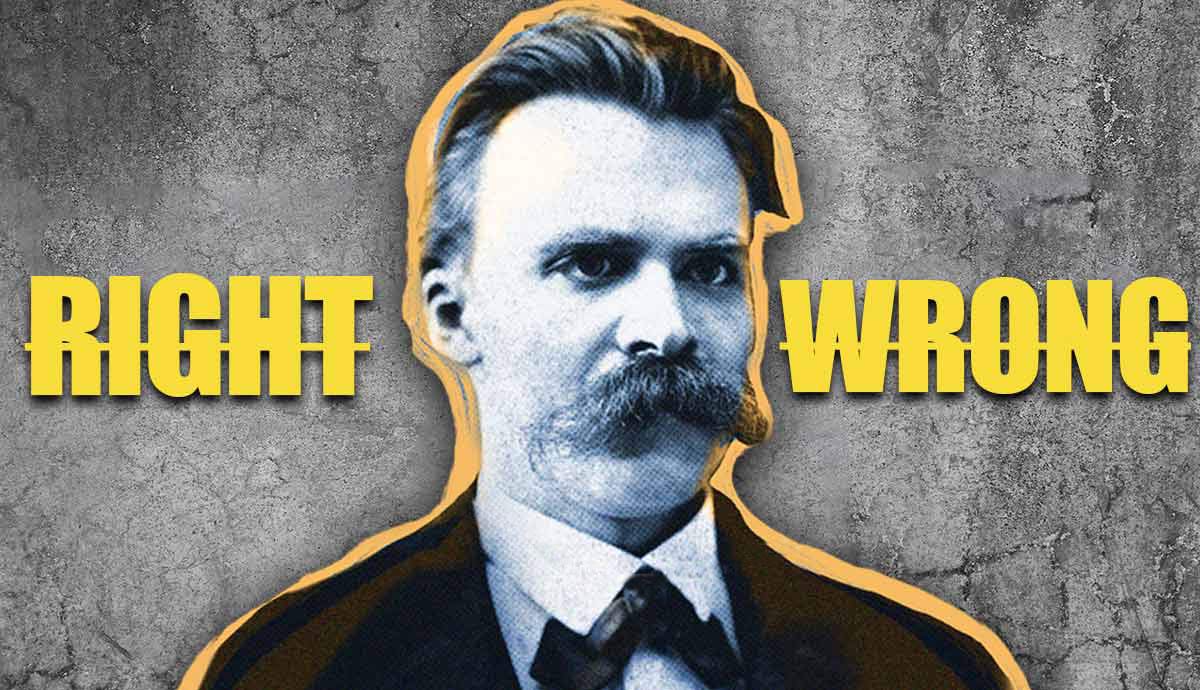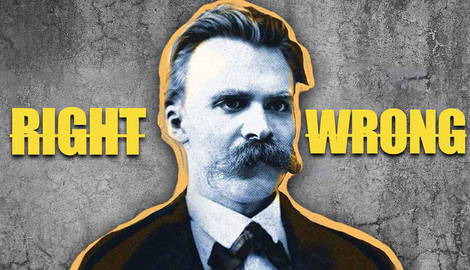
Friedrich Nietzsche was one of the most important philosophers of the 19th century. His effect on the progression of European intellectual culture is as profound as any figure from the modern period. One of his most important contributions to philosophy comes in the area of moral philosophy, or ethics. Nietzsche is often understood to have denied the existence of morality – in other words, he is understood as a moral nihilist. But is that reputation deserved?
Nietzsche Was Critical of Morality

The case for Friedrich Nietzsche being a moral nihilist largely hinges on the critical attitude he took towards the contemporary morality of his time. Nietzsche, in the Genealogy of Morality, throws a great deal of doubt on many of the existing moral frameworks available in Europe at the time. He is especially critical of religious morality, or morality derived from religious traditions. He criticizes Christian morality, describing it as a form of “slave morality” used to keep the strongest from expressing their power and to protect the weakest from them.
But what is moral nihilism? Broadly speaking, moral nihilism can be defined as the view that there are no objective moral truths or values. Whether we see Nietzsche as a moral nihilist will depend greatly on how far we see his criticism of existing morality as indicative of a broader kind of moral skepticism, or rather as criticizing a particular moral tradition.
Nietzsche Was a Moral Skeptic

Another view of Nietzsche’s moral philosophy is that, although he was not strictly speaking a moral nihilist, he was nonetheless a kind of moral skeptic. What does this view entail? Well, whereas being a moral nihilist entails a positive certainty that there is no such thing as morality, moral skepticism is a more intermediate position – it holds that, there may be no such thing as morality, but we should remain cautious about expressing certainty on that point.
Nietzsche often seems to hold this latter view. He connects the study of morality with the study of human nature, and yet expresses a great deal of reservation about that latter discipline. In other words, he is very cautious about the belief that we can truly know ourselves.
Consider this quote from the Genealogy of Morality, which illustrates this reticence perfectly: “We are unknown to ourselves, we men of knowledge – and with good reason. We have never sought ourselves – how could it happen that we should ever find ourselves? It has rightly been said: “Where your treasure is, there will your heart be also”; our treasure is where the beehives of our knowledge are.” Nietzsche’s perspective can be interpreted as a kind of uncertainty about the possibility of self-understanding, which in turn leads him to a skeptical view of moral enquiry.
Nietzsche’s Views Were Nuanced

On another interpretation, Nietzsche was not a moral nihilist at all. While Nietzsche did criticize and reject certain traditional moral frameworks, he developed his own complex and nuanced ethical philosophy that differs significantly from moral nihilism. In other words, his criticism of existing moral frameworks should never be understood as a rejection of morality as a whole, and the inventiveness of his own moral philosophy belies any attempt to accuse him of moral nihilism.
Moral nihilism denies the existence of any inherent moral principles or standards, asserting that moral claims are ultimately baseless and without meaning. However, it isn’t clear that a denial of the inherence of morality makes one a moral nihilist. The idea of inherence is relevant here – probably the strongest claim that can be made concerning Nietzsche’s moral nihilism is that he does not believe that there could be such a thing as an inherent morality, and that morality must always be constructed.
Nietzsche Believed In a Creative Vision For Morality

In Nietzsche’s view, morality is not a fixed set of rules or objective truths but is rather a product of human culture and historical context. He recognized the perspectival and subjective nature of moral values, which he called “perspectivism.” Nietzsche’s rejection of conventional morality does not lead to moral nihilism but rather to a call for a revaluation of values and the pursuit of individual self-realization. He sought to replace traditional moral frameworks with a more life-affirming and authentic approach to ethics. Nietzsche presents a challenging and far-reaching criticism of the moral world he found himself surrounded by, but it does not follow from this that Nietzsche was, in fact, a moral nihilist.










